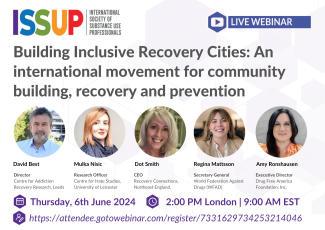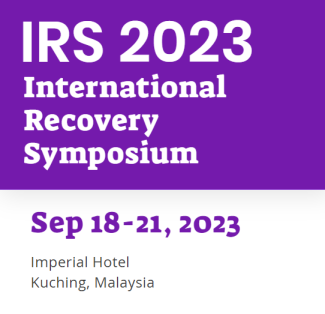Buddhist Psychology of Prevention and Recovery Part 1
https://youtu.be/g4WXRfts7mg?si=_lYiuyhPTMCHcY8N This presentation is on Buddhist Psychology for prevention and addiction recovery. Please be kind enough to share this with interested parties.
ISSUP, in collaboration with the Centre for Addiction Recovery Research (CARR), cordially invites you to an upcoming webinar on Building Inclusive Recovery Cities.
Time: 2:00 PM London | 9:00 AM EST

Experience the the world's first international recovery symposium in Borneo.
Interact with and gain insights from international healthcare professionals including professors, doctors, psychiatrists, psychotherapists, mental health counselors, caregivers, and researchers in the field of addiction therapy and recovery, behavioral health, psychiatry, and drug demand reduction.
When: Sep 18-21, 2023

